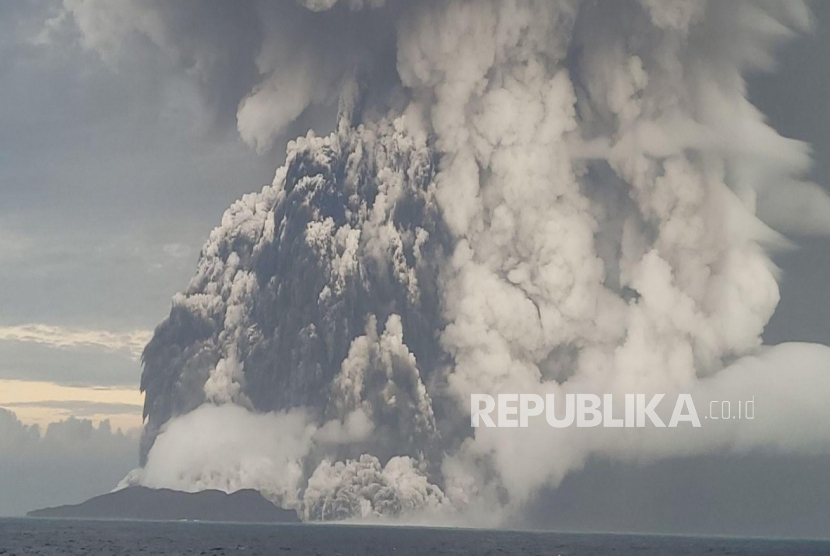Water from the eruption of Mount Tonga can take up to 10 years to evaporate.
REPUBLIKA.CO.ID, TONGA — The violent eruption of the Hunga-Tonga-Hunga Ha’apai volcano in Tonga on January 15, 2022, sprayed unprecedented amounts of water straight into the stratosphere. This is enough to fill more than 58,000 Olympic-sized swimming pools.
“We’ve never seen anything like it,” said Luis Millán, an atmospheric scientist who works at the US Space Agency’s (NASA) Jet Propulsion Laboratory. Fox NewsFriday (5/8/2022).
When a volcano erupts, seawater comes into direct contact with the erupting lava and becomes very hot, creating “explosive steam”. Scientist NASA said that the steam would persist for years, possibly affecting Earth’s global average temperature.
Usually the steam takes about two to three years to dissipate. However, water from the January 15 eruption could take five to ten years to evaporate.
Hunga Tonga-Hunga Ha’apai “perhaps the first observed volcanic eruption impacting climate not through surface cooling caused by volcanic sulfate aerosols, but through surface warming,” Millán hypothesizes in a paper.
Millán led research examining the amount of water vapor volcanoes spray into the stratosphere, the layer of the atmosphere between about eight and 33 miles (12 and 53 km) above Earth’s surface. Millán and his colleagues found that the Tonga volcano sends about 146 tetragrams (1 tetagram equals one trillion grams) of water vapor into Earth’s stratosphere.
The amount of water released into the stratosphere is equal to 10 percent of the water already in the atmosphere. Their research is published in Geophysical Research Letters.
The eruption came from a volcano more than 12 miles wide. The day before the major eruption, Tongan officials reported on Facebook the volcano was continuing to erupt. In the post, they reported that the volcano sent a three-mile-wide plume of ash, steam and gas that rose 35 miles into the atmosphere.
The researchers also noted how water vapor can weaken the ozone layer that protects life on Earth from damaging radiation from the sun.
The study’s authors said it was too early to predict the exact climate effects of the Tonga eruption. “It is imperative to continue to monitor volcanic gases from these and future eruptions to better gauge their various roles in climate,” Millán wrote.


